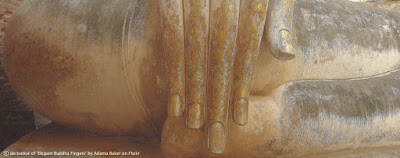ALEXANDER VON HUMBOLDT,
German naturalist and explorer, died (b: 1769); The one, the only the
great. Perhaps one of my own favorite personages in this almanac. He was
the younger brother of the Prussian minister, Wilhelm von Humboldt
(1767-1835) Alexander von Humboldt's work on botanical geography is
considered foundational to the fields of bio-geography, physical
geography and meteorology.
Von Humboldt is a
prime example of a Renaissance man of the sciences, studying in
astronomy, vulcanology, and geology. Thomas Jefferson called him, “The
most important scientist I ever met.” 19th century Freethinker, Robert
G. Ingersoll said, "He was to science what Shakespeare was to the
drama." If he were alive today, he would be another candidate for "The
Most Interesting man in the World" commercial.
In the 19th
Century, Alexander von Humboldt was one of the most famous men in Europe
and is remembered for not only his own scientific achievement, but for
his nurturing and mentoring of young, up-and-coming scientists. The
American painter Rembrandt Peale painted him, between 1808 and 1810, as
one of the most prominent figures in Europe at the time. There are a
dozen species names in his honor and Humboldt Bay, California, Humboldt
Park (in Chicago) are among dozens of other places and schools, named
after him in the U.S.
Between 1799 and
1804, Humboldt traveled extensively in Latin America, exploring and
describing it for the first time in a manner generally considered to be a
modern scientific point of view. His description of the journey was
written up and published in an enormous set of volumes over twenty-one
years. He was one of the first to propose that the lands bordering the
Atlantic Ocean were once joined (South America and Africa in
particular). His five-volume work, Kosmos (1845), attempted to unify the
various branches of scientific knowledge.
Among his myriad
accomplishments, Humboldt is considered to be the "second discoverer of
Cuba" due to the scientific and social research he conducted on the
island. During an initial three-month stay at Havana, his first tasks
were to survey Havana city and nearby towns. He befriended Cuban
landowner and philosopher Francisco Arrango y Parreno, and together they
visited south Havana, the valleys of Matanzas Province, and the Valley
of the Sugar Mills in Trinidad.
Much of
Humboldt's private life remains a mystery because he destroyed his
private letters, but throughout his life Humboldt formed strong
emotional attachments to men. In 1908 the sexual researcher Paul Näcke,
who worked with sexologist and researcher Magnus Hirschfeld, gathered
reminiscences of him from people who recalled his participation in the
homosexual subculture of Berlin. A travelling companion, Francisco Jose
de Caldas, accused Humboldt of frequenting houses where 'impure love
reigned', of making friends with 'obscene dissolute youths', and giving
vent to 'shameful passions of his heart'. Sounds like a man who knew how
to have a good time.
To the soldier
Reinhard von Haeften he wrote: "I know that I live only through you, my
good precious Reinhard, and that I can only be happy in your presence."
He never married. He was strongly attached to his brother's family; and
in his later years formed a matrimonial bond to an old and faithful
servant named Seifert. Indeed, four years before his death, he executed a
deed of gift transferring the absolute possession of his entire estate
to Seifert.
Edgar Allan Poe
dedicated his last major work, Eureka: A Prose Poem, to von Humboldt.
Charles Darwin makes frequent reference to Humboldt's work in his Voyage
of the Beagle, where Darwin describes his own scientific exploration of
the Americas. He went on to say, “He was the greatest travelling
scientist who ever lived." – "I have always admired him; now I worship
him."
On, May 6th 2009,
according to a press release forwarded by GayWisdom reader David
Kerlick, (himself a Humboldt Fellow in Germany, 1975-1977), the
Alexander von Humboldt Foundation officially commemorated its name-giver
on the occasion of the 150th anniversary of the death of Alexander von
Humboldt:
“Together with
Humboldt University and the Office of the Governing Mayor of Berlin, the
Humboldt Foundation is holding a ceremony in the Senate Hall at
Humboldt University. Following a welcome address by the State Secretary
for Cultural Affairs in the Office of the Governing Mayor of Berlin,
André Schmitz, the President of Humboldt University Professor Christoph
Markschies, the Ambassador of the Republic of Chile, Professor Álvaro
Rojas Marín, and the President of the Humboldt Foundation, Professor
Helmut Schwarz, will read from Humboldt’s writings. The ceremonial
address, “The Brightness Of The Stars – Alexander Von Humboldt Narrating
The World & The Universe,” will be held by the Honorary President
of the Humboldt Foundation, Professor Wolfgang Frühwald. “
Virtually every time you see the name "Humboldt" on something, it is named after this man who loved men.









